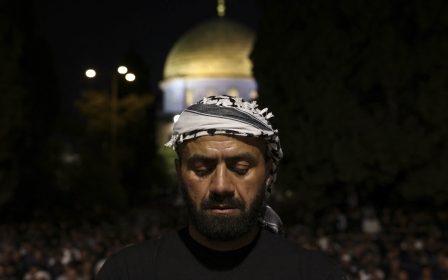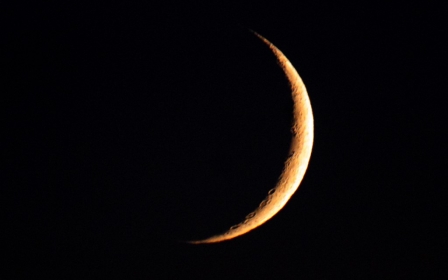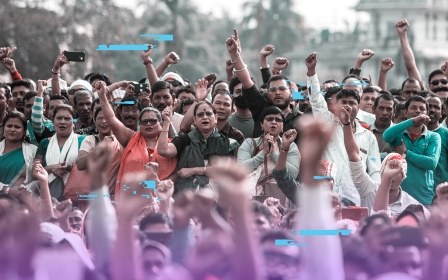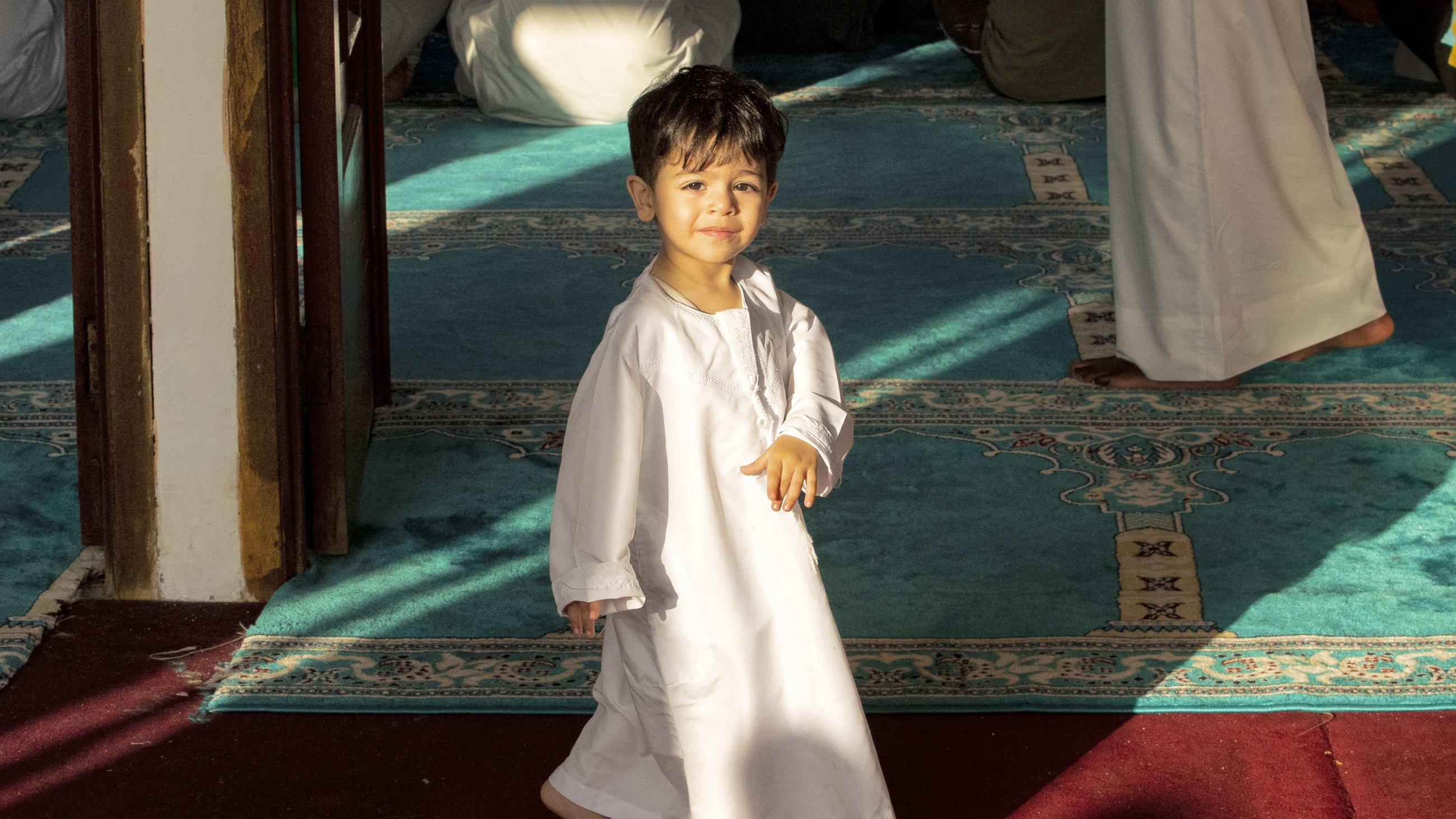
Eid al-Fitr 2023: Muslims celebrate festival after the end of Ramadan
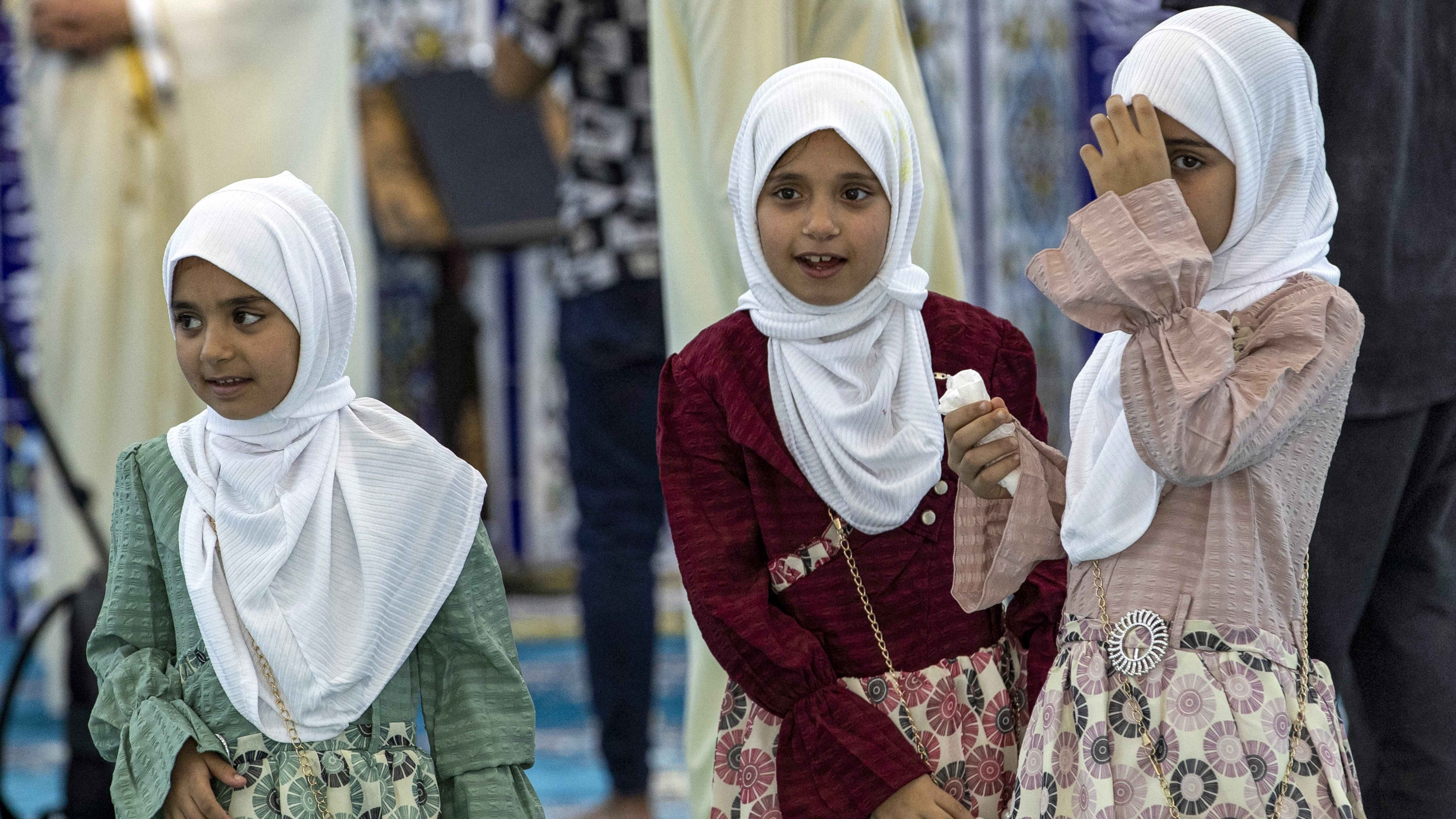
For many Muslims, the fasting month of Ramadan has come to an end and the day of Eid al-Fitr has begun. Authorities in countries including Saudi Arabia, Algeria, Turkey, and Qatar declared that Friday 21 April would be the first day of the Islamic month of Shawwal. Several other Muslim countries, including Iran and Morocco, have said that Eid will begin on Saturday, meaning one more day of fasting for the faithful in those countries. The date of Eid al-Fitr is determined by the sighting of the new moon but different countries and groups of Muslims have different criteria for what constitutes a sighting. Some say that the use of optical aids should be avoided and some say astronomical calculations are permissible, while others disagree. In the images above, children attend Eid prayers at Basra Grand Mosque in Iraq. (Lead image and above image: AFP/Hussein Faleh)
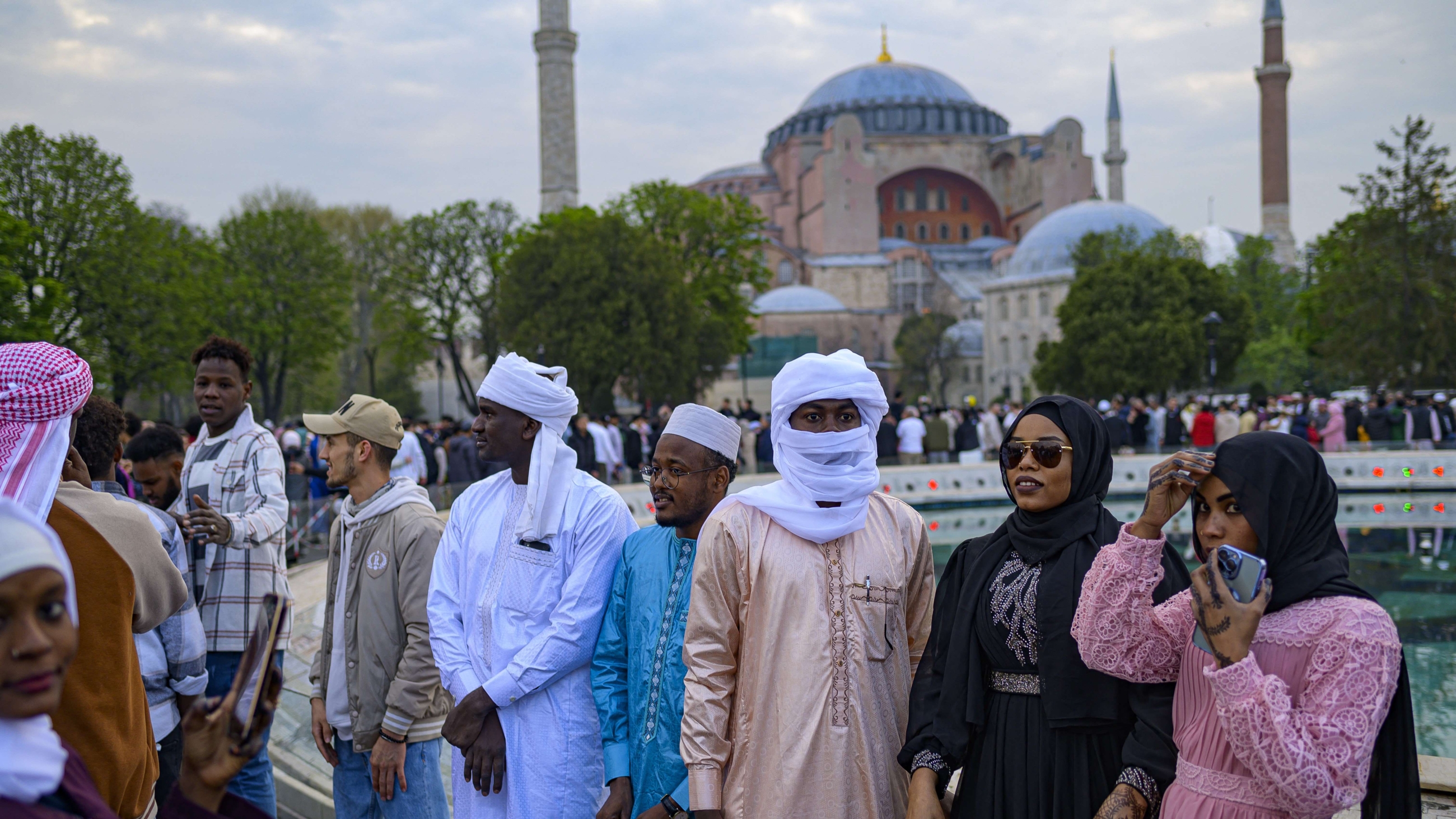
African Muslims wear traditional clothing for Eid prayers at the Hagia Sofia mosque in Istanbul. Turkey's largest city is home to diverse communities from different parts of the Islamic world and is also a popular tourist attraction for Muslims. (AFP/Yasin Akgul)
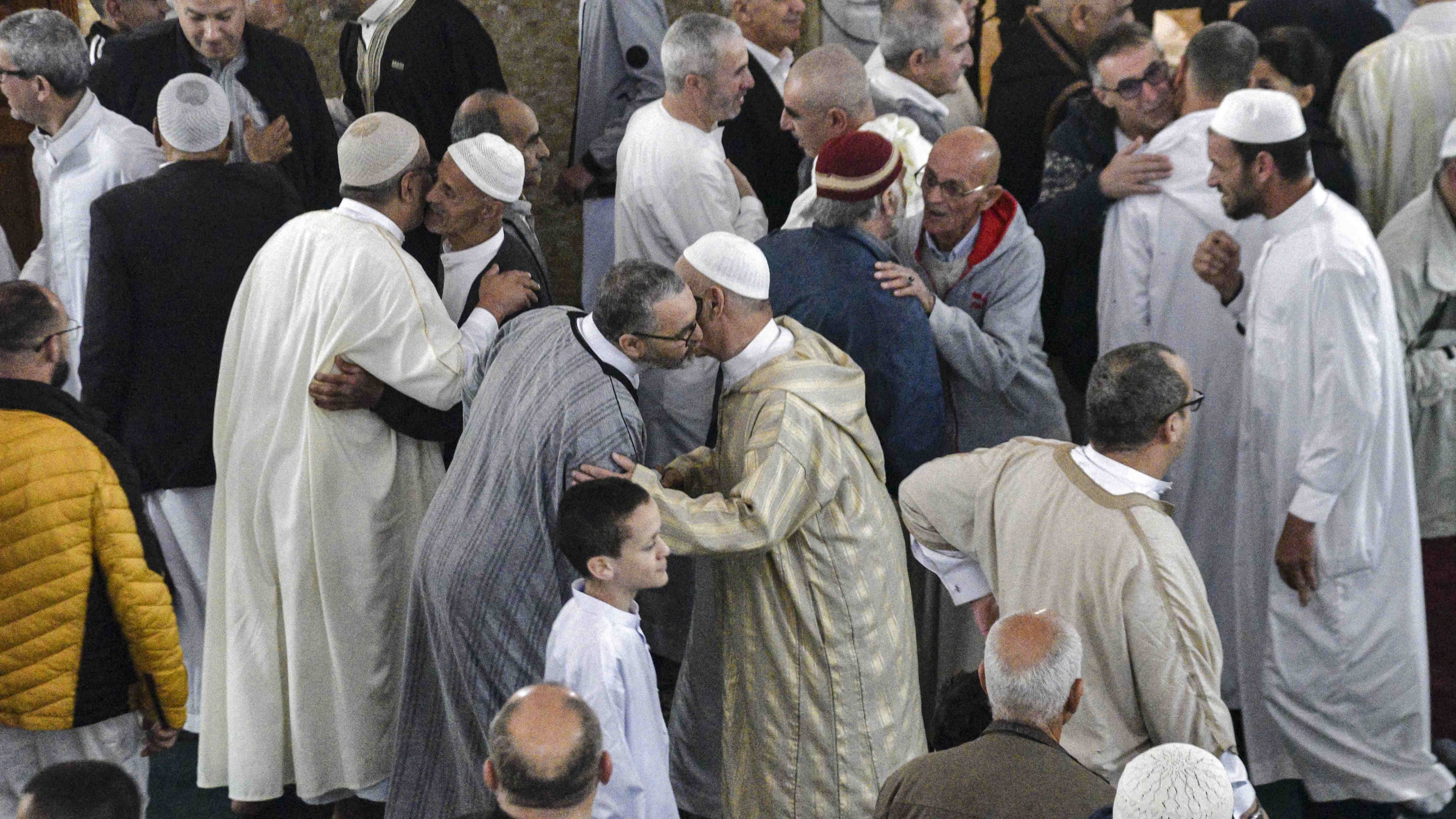
Men hug each other after the conclusion of Eid prayers at a mosque in Algiers. These prayers are one of the most important traditions associated with Eid and take place after dawn, either in a mosque or a public field. The prayers are distinguished from normal daily Islamic prayers because they are accompanied by a sermon, known as a "qutba". Usually, only Friday prayer services are performed with a sermon. (AFP)
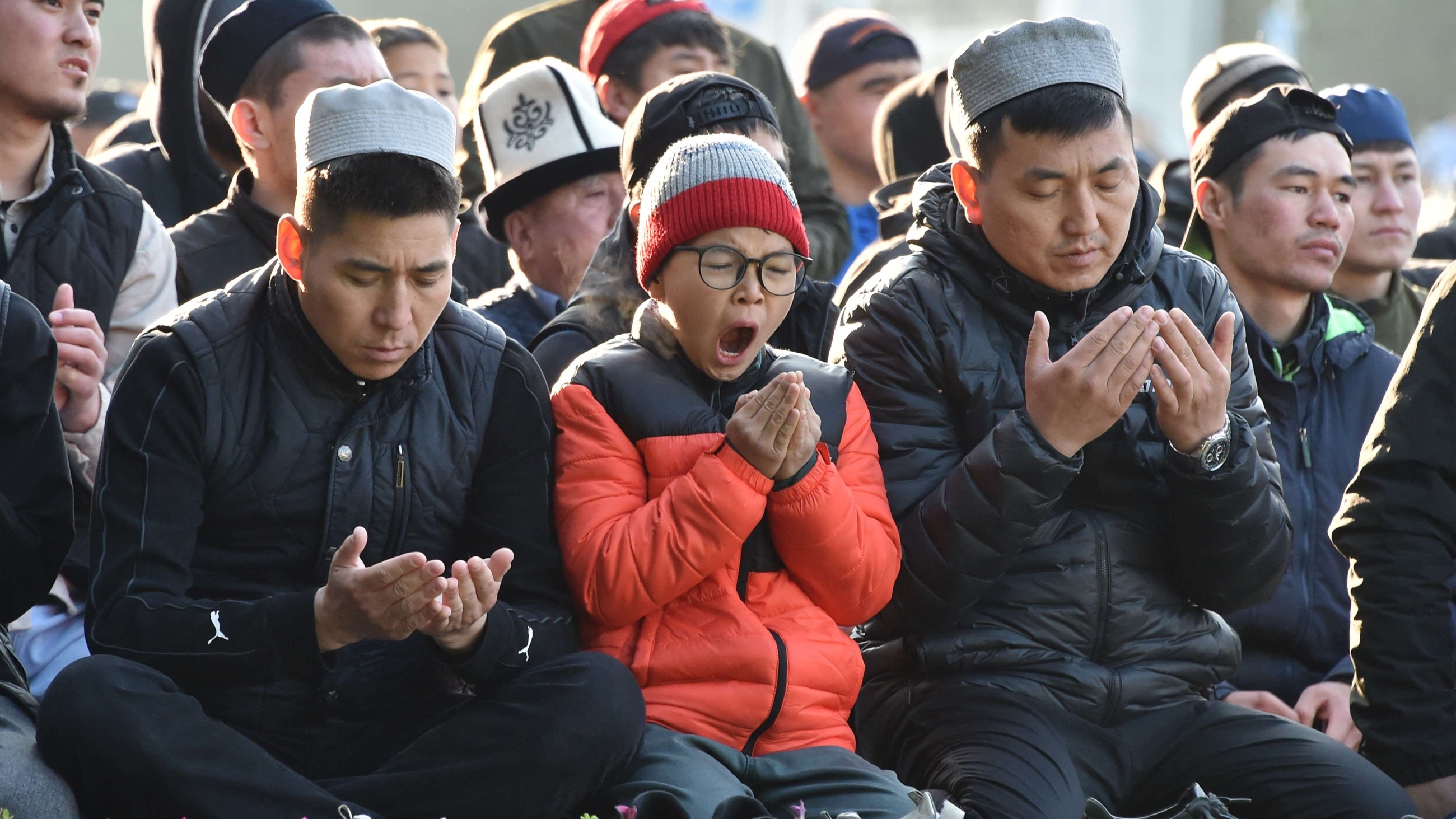
Worshippers pray at a public Eid service in the Kyrgyz capital of Bishkek. The Central Asian republic has a population of around seven million people, 90 percent of whom are Muslims with Turkic ethnic backgrounds. For decades, the country was part of the Soviet Union and subject to its repression of religion. (AFP/Vyacheslav Oseledko)
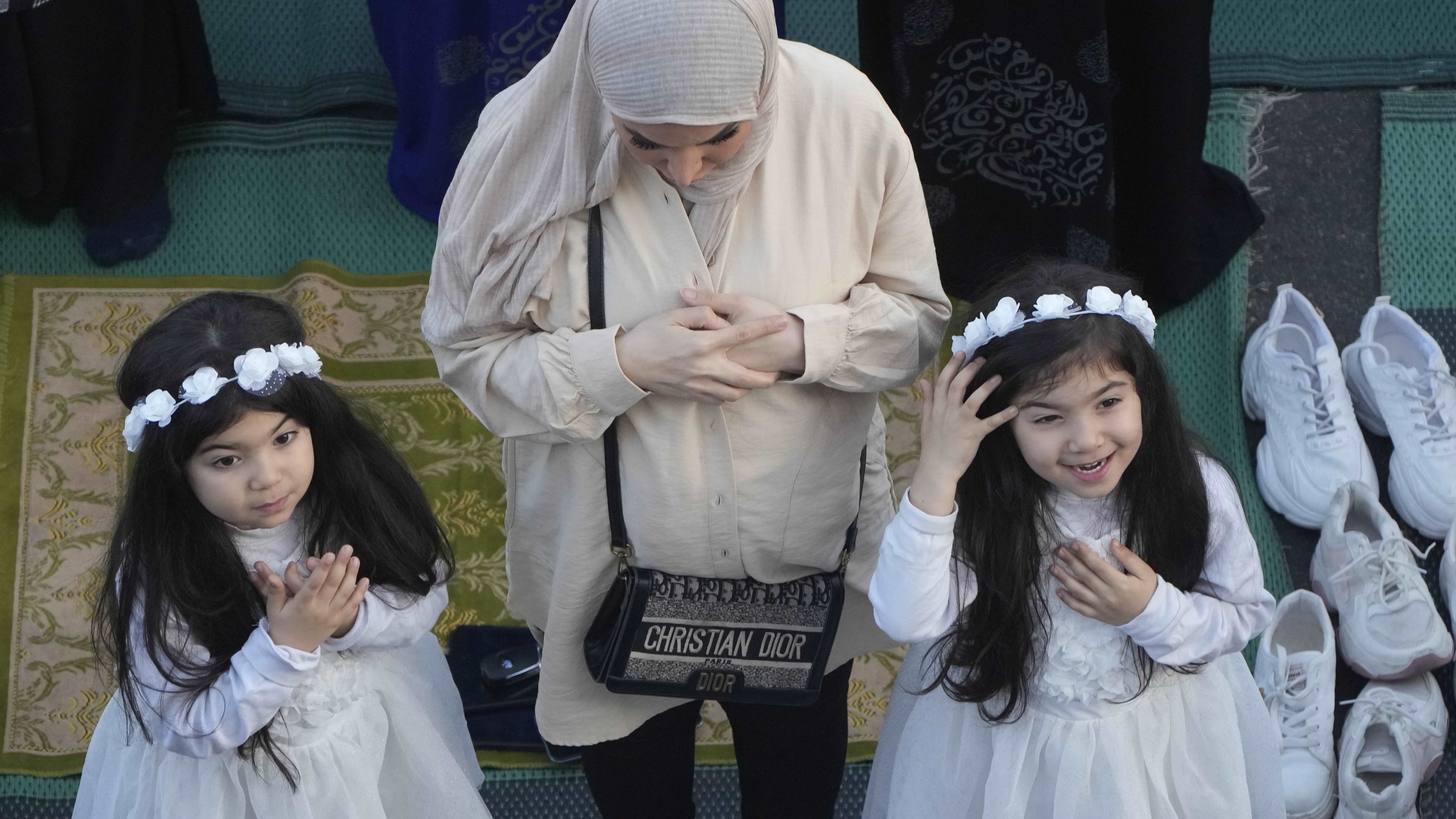
A woman performs Eid prayers in between two children at the al-Seddik mosque in Cairo. (AP Photo/Amr Nabil)
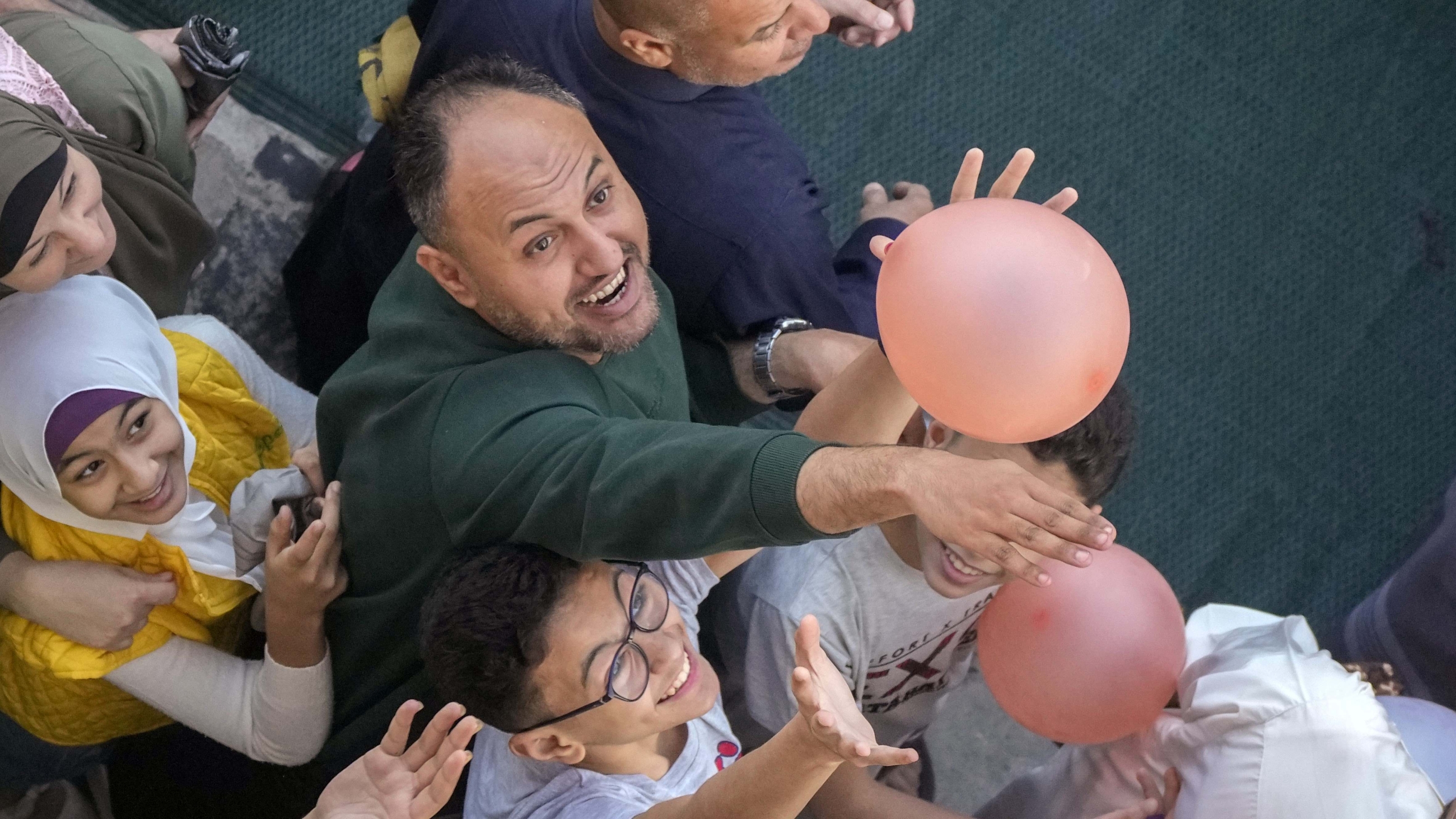
A man and some children play with balloons after Eid prayers at the al-Seddik mosque in the Egyptian capital of Cairo. Eid al-Fitr literally means "the festival of breaking the fast" and marks the end of the holy month of Ramadan, during which Muslims believe the Quran was revealed to the Prophet Muhammad. (AP Photo/Amr Nabil)
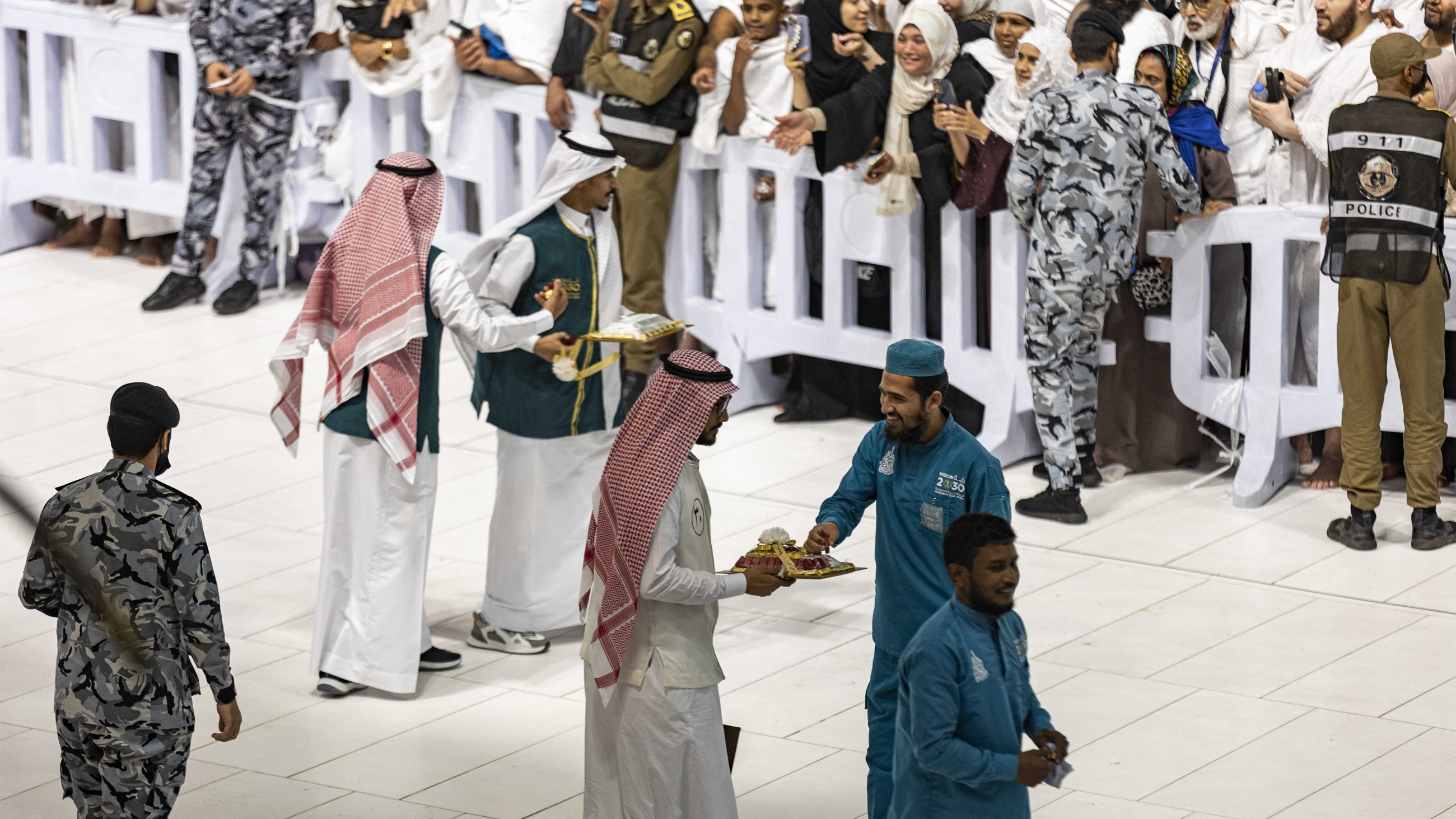
Another tradition associated with Eid is the handing out of sweets. In the picture above, Saudi officials hand out treats to workers and worshippers at the Grand Mosque in the Muslim holy city of Mecca. (AFP/Abdel Ghani Bashir)
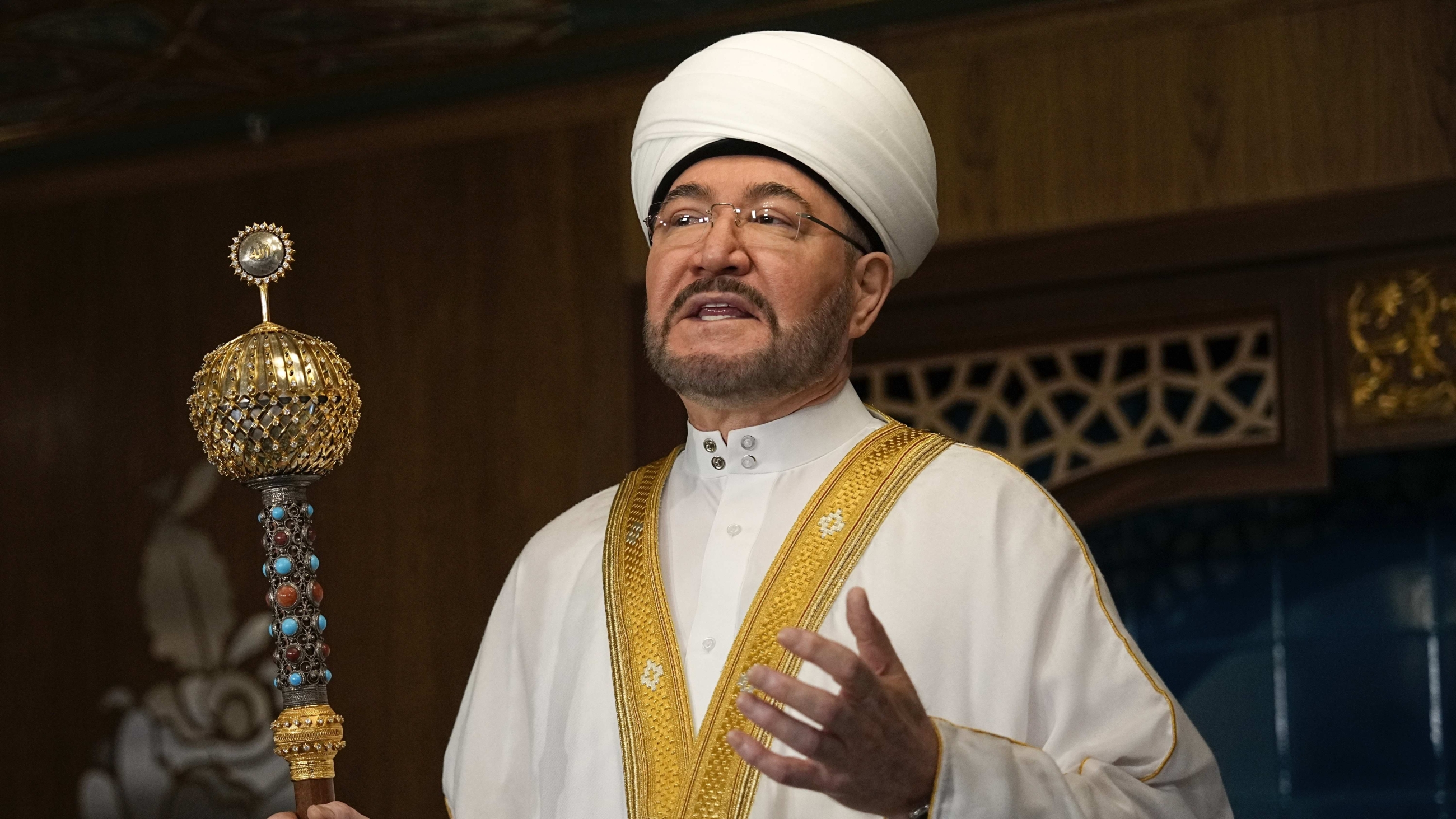
One of Russia's most senior Muslim leaders, Mufti Ravil Gainutdin, delivers the Eid sermon at the Moscow Cathedral Mosque. Around ten percent of Russia's population is Muslim - some 14 million people. They are mostly either ethnic Tartars, people from the Caucasus region, or migrants from former Soviet republics. (AP Photo/Alexander Zemlianichenko)
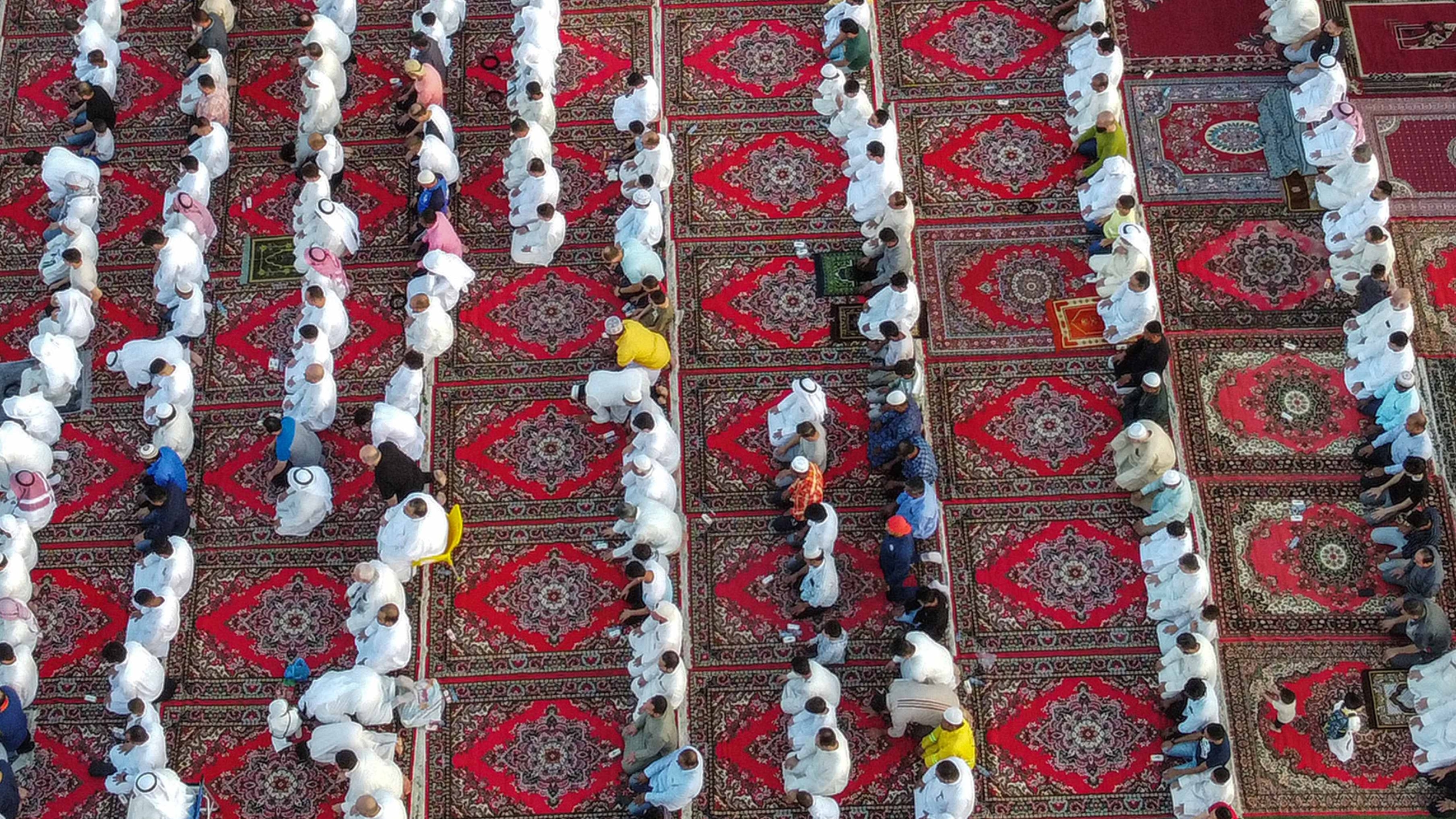
Muslims gather for Eid prayers at a football stadium in Kuwait. Like its Gulf neighbours, the emirate announced it would be marking the first day of the celebration on Friday. (AFP/Yasser al-Zayat)
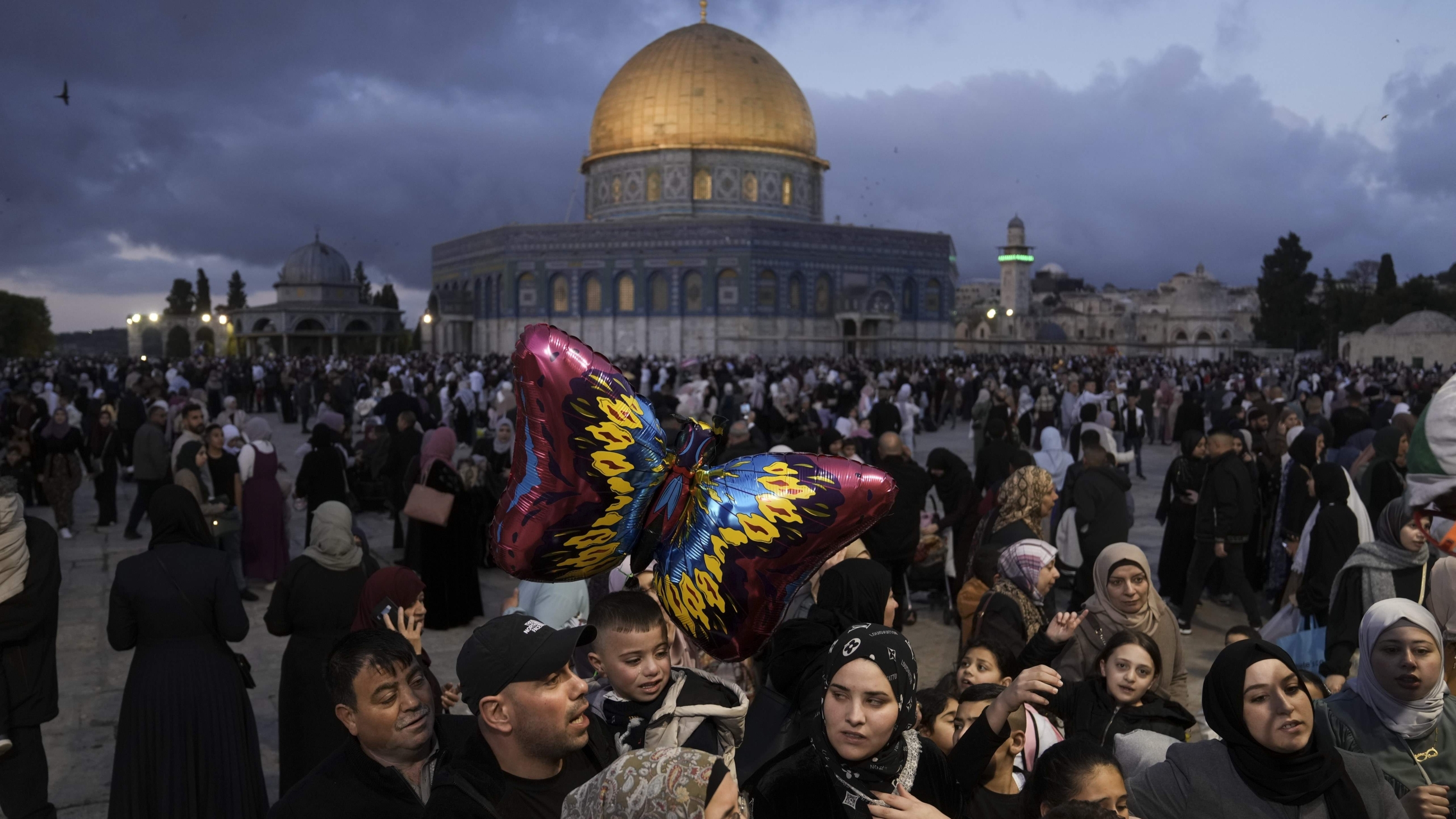
Palestinians gather at the Al-Aqsa mosque just after the break of dawn in Israeli-occupied East Jerusalem on 21 April. In Islamic convention, a new month begins with the sighting of the moon so Eid formally began the previous evening. (AP Photo/Mahmoud Illean)
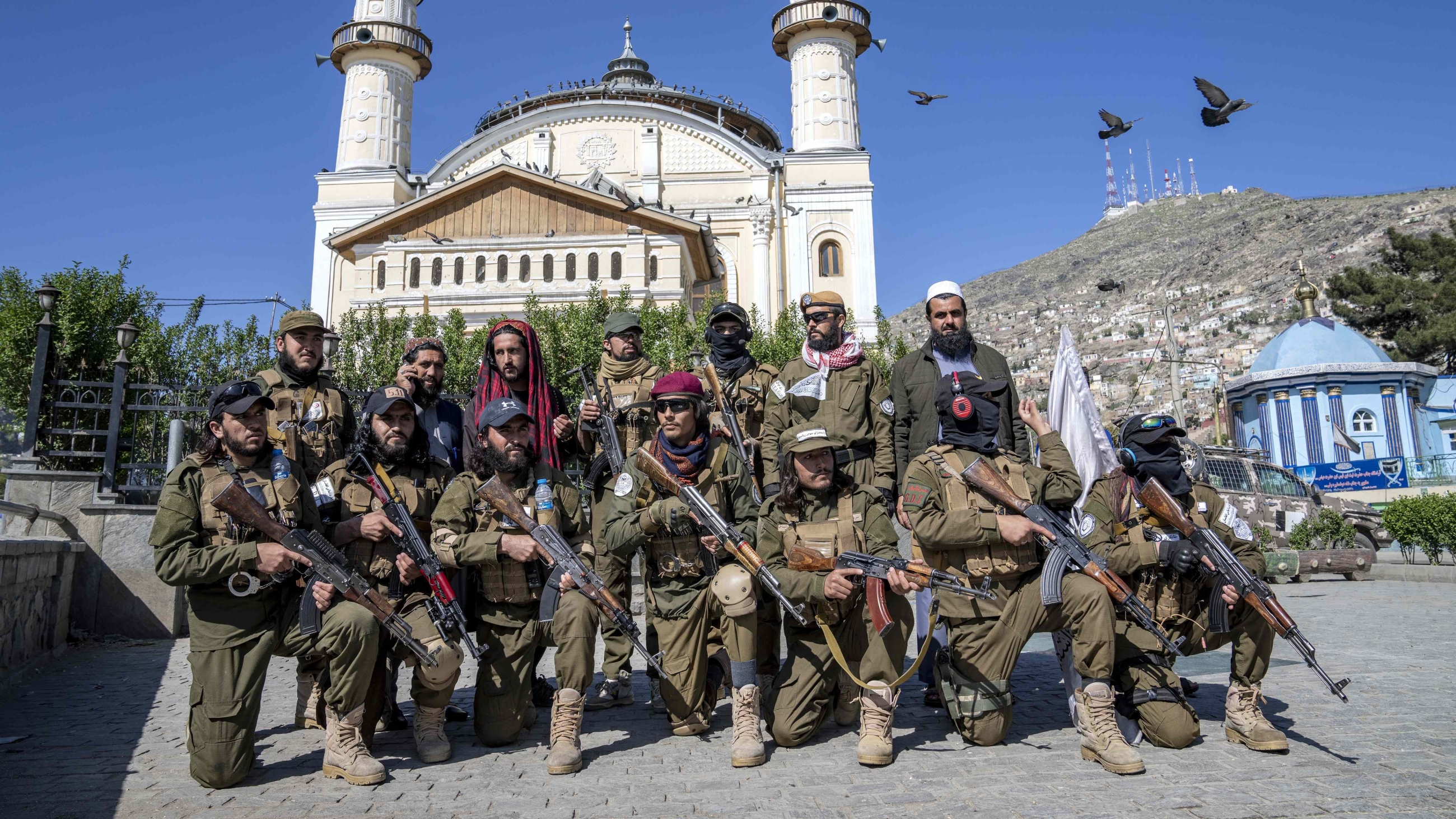
Taliban fighters pose for a picture outside a mosque in Kabul after security duty for Eid prayers. The armed religious movement took control of Afghanistan in August 2021 after the withdrawal of the US and its allies following two decades of war. (AP Photo/Ebrahim Noroozi)
Middle East Eye delivers independent and unrivalled coverage and analysis of the Middle East, North Africa and beyond. To learn more about republishing this content and the associated fees, please fill out this form. More about MEE can be found here.


